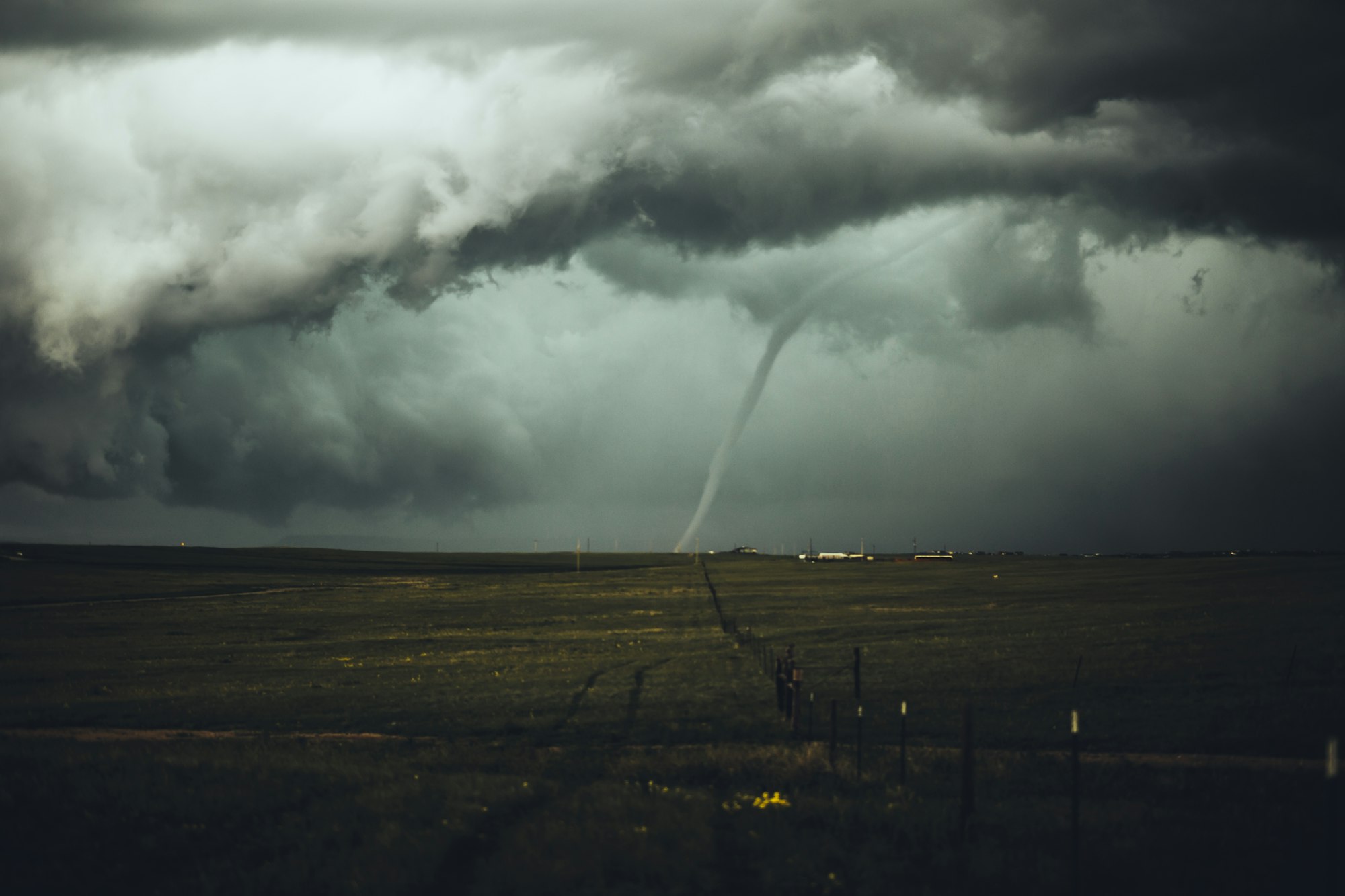Do you know the difference between cyclone, tornado, hurricane and typhoon?

According to the Salvat Universal Encyclopedia:
- Tornado: atmospheric whirlpool of small horizontal extension and great intensity that extends towards the earth's surface from a storm cloud. True column of rising air, they usually cause great havoc. It is due to the contact of warm, moist air with cold air of high levels.
- Cyclone: atmospheric disturbance that originates above warm seas, and in which winds revolve around a center of low pressure at speeds exceeding 120 km / h.
- Hurricane: dynamic weather system that originates in tropical regions, characterized mainly by the rotation of air around a center of very low pressure, at speeds of the order of 150 km / h.
- Typhoon: tropical cyclone, frequent in the China Sea. It devastates the coastal regions of southern China and the Philippines. It is characterized by very strong winds and torrential rains.
Therefore, hurricane and typhoon is the same as cyclone since they are generated in the sea with great winds in a great amplitude, generically hundreds of kilometers, of space by rotations in the hands of the clock in the southern hemisphere, and in the opposite direction in the northern hemisphere, and according to their area of origin on earth they receive one denomination or another:
- Southwest Indian Ocean: Tropical Cyclone
- Southwest Pacific Ocean: Tropical Cyclone
- Remaining Indian Ocean (non-southwest): Typhoon-
- Western Pacific Ocean: Typhoon
- Arabian Sea: Typhoon
- North Atlantic Ocean: Hurricane
- North Pacific Ocean, East Zone: Hurricane
- Central Pacific Ocean, Gulf of Mexico: Hurricane
- Caribbean Sea: hurricane
The tornado is another meteorological phenomenon other than cyclones, hurricanes and typhoons. Since its origin is on land, not in the sea. Its amplitude is much smaller, usually a few meters. The winds of both are comparable, but in the case of tornadoes they are absorbent winds, as shown in many films where the tornado "swallows" everything it finds on the ground... returning it to gravity.
Tornadoes unlike cyclones are difficult to predict.
A variant of tornadoes are the sleeves or waterspouts that form over the sea, rather than over land.
Below is a scene from the 1996 film Twister, where you can see very well what a tornado is:
They all cause a lot of destruction, and the only defense today is to predict them as soon as possible and in the most reliable way.
